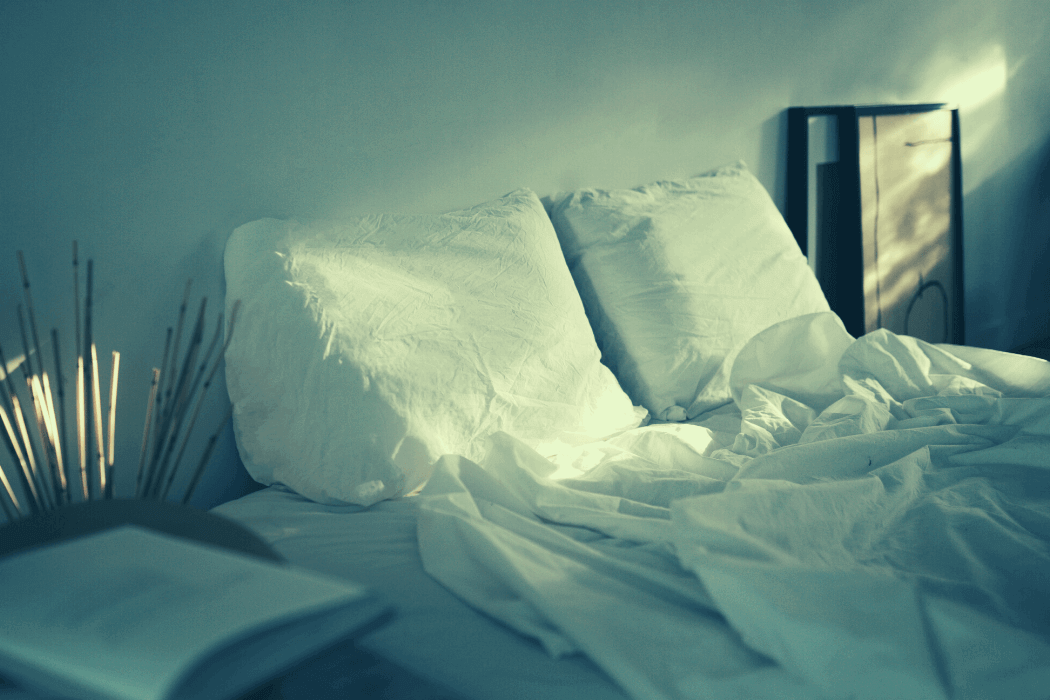You may have heard the term ‘sleep hygiene’. It’s used to describe healthy sleeping habits which promote a good nights rest. Many of the principles of sleep hygiene are common sense, however the rush of modern life means they are often easy to neglect. If you find you’re having problems with sleep, making a few small adjustments to your lifestyle and attitude might dramatically improve your quality of sleep.
Lets start by taking a look at why our sleep is so important.
Poor sleep is associated with an increased risk of various chronic conditions, such as:
On the other hand, the benefits of a restful nights sleep include:
- Healthier looking skin
- Better cognitive function
- Healthy testosterone levels
- Increased athletic performance
- Preliminary evidence also suggest that sleep may promote a healthier gut microbiome
What can you do to improve your sleep?
1. Listen to your body clock.
The body has its very own biological clock, called the circadian rhythm. It follows a 24-hour cycle and responds to light and darkness in our environment. This natural rhythm knows when it’s time to sleep, trust your body and don’t ignore it. Going to bed too early or late can cause sleep problems. If you go to bed and get up at the same time everyday, this will help ‘set’ your biological clock. Another thing that helps ‘set’ your clock is getting enough sunshine through the day.
2. Boost your melatonin and get enough sunlight.
Another thing that helps ‘set’ your clock or circadian rhythm is getting enough sunshine through out the day. Studies have found that sunlight exposure improves melatonin production, an important neurotransmitter responsible for the induction of sleep (it also plays an important role in detoxification and anti-aging). Melatonin is produced in the pineal gland, from the chemical melanin which is produced in the skin through sun exposure. Try to get at least 30-45 minutes of sun exposure per day and preferably without a sunglasses.
3. Dim the lights.
Try to sleep in as much darkness as possible. Sleeping with lights on will interfere with melatonin production and sleep cycles, causing more fragmented sleep. Research shows that just closing your eyes is not enough to block a sufficient amount of light, and even low levels of indoor light can effect circadian rhythm.
It is also important to think about how the light emitted from electronic devices may be affecting your sleep. The blue light emitted from televisions, mobile phones, tablets, and laptops has been found to have a significantly larger effect on melatonin and circadian rhythm than other kinds of light.
Try to avoid these types of light for at least an hour prior to bed. If this seems like an impossibility, take measures to reduce their impact. Check the settings on your TV and reduce the amount of backlight, and switch to a warm (red) light setting. Some newer TVs may even have a blue light reducing setting. Most mobile and laptops also now have blue light-reducing settings. Alternatively you can purchase a pair of blue light blocking glasses.
4. Create the right environment
It is important to create a peaceful environment in your bedroom which promotes sleep. This includes;
- Ensure noises are minimal; for those you can’t control invest in a set of earplugs
- Keep the temperature comfortable and avoid electric blankets that can overheat.
- Don’t use your bed for anything other than sleep and sex. The brain connects places with events so if you use the bedroom like a living room (watching TV, eating etc) the brain will associate it with activity and not sleep.
- Invest in a comfortable mattress, pillows, bedding and pyjamas and keep them clean and fresh.
- Remove anything distracting such as ticking or brightly lit clocks – you really don’t need reminders of how long you’ve been awake!
- Keep mobile phones and electrical devices out of the bedroom.
- Get yourself an aromatherapy diffuser. There are many essential oils that aid sleep, lavender is my all time favourite though which has a wonderful anxiolytic effect.
3. Practice relaxation and mindfulness
If you have trouble relaxing at bed time, try this 4-7-8 breathing technique for reducing anxiety and inducing sleep.
- Place one hand on your belly just below the rib cage and your other hand on your chest
- Breath in deeply while counting to 4
- Hold the breath for 7 seconds
- Exhale the breath while counting to 8
- Repeat this until you feel your body relaxing. It can be difficult to master at first so stick with it.
4. Avoid caffeine in the afternoon
It takes the body between 6-9 hours to metabolise caffeine so best to avoid it in the afternoon if you want to sleep well. Drink herbal teas instead and don’t forget that black and green tea also contain caffeine.
Are you one of those people who can drink coffee and still sleep? Well studies show that you’re probably not experiencing the full restorative benefits of sleep anyway.
5. Exercise Daily
Studies show that daily exercise can improve sleep. Just don’t exercise too close to bedtime, this can be over stimulating and have the opposite effect.
Other things to consider
- Don’t stay in bed if you’re not asleep after a reasonable amount of time (about 30 minutes). Get up and do something boring in a different room and keep the lights low. When you feel tired try to sleep again.
- Don’t go to bed full or hungry
- Some medications can interfere with sleep so take them as directed and speak with your doctor if you are concerned about the effect they have on your sleep.
What next?
If you’ve made these changes and are still struggling to sleep there may be some deeper issues at play. If you need some help getting your sleep back on track then a naturopathy consultation might help you. Lets chat!


